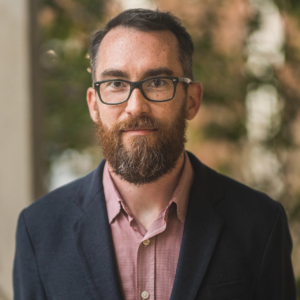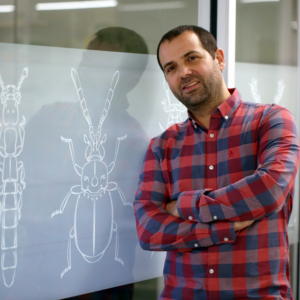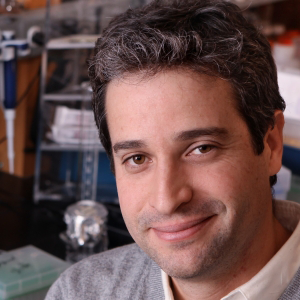Several new editors are joining the GSA Journals. We’re excited to welcome Ricardo Zayas to the GENETICS editorial board under the Molecular Genetics of Development section, and on the G3: Genes|Genomes|Genetics board, we welcome Polly Campbell, Kevin Vogel, Joe Parker, and Ricardo Mallarino.
Ricardo Zayas
Associate Editor

Ricardo Zayas is a Professor of Biology at San Diego State University working on regeneration and stem cell biology. He received a Biology BS degree from Fairfield University and a PhD in Biology from Tufts University in the neurobiology of simple behaviors using larval stages of the tobacco hornworm Manduca sexta. Ricardo then completed postdoctoral training in the laboratory of Dr. Phillip Newmark at the University of Illinois at Urbana-Champaign, where he began to study whole-animal regeneration using the planarian Schmidtea mediterranea. The Zayas lab uses planarian stem cell-based regeneration as a model to investigate molecular mechanisms underlying neurogenesis and epigenetic regulation of stem cell differentiation.
Polly Campbell
Associate Editor

Polly Campbell is an Associate Professor in the Department of Evolution, Ecology, and Organismal Biology at University of California Riverside. Her current research is on genome evolution in mammals, with a focus sex chromosomes and structural mutations and a fascination with conflict. She holds a BS in Biology from University of New Mexico and a PhD from Boston University where she worked on the evolution and ecology of Old World fruit bats in Southeast Asia. In her postdocs she studied the development and evolution of vocal communication in Neotropical mice (University of Florida), and speciation genetics in house mice (University of Arizona).
Kevin Vogel
Associate Editor

Kevin Vogel is an assistant professor in the Entomology Department at the University of Georgia studying vector biology and host-microbe symbiosis. He received his BS from Michigan State University where he studied microbiology and began his work on insects. He earned his PhD from the University of Arizona in Ecology and Evolutionary Biology where he worked under the mentorship of Dr. Nancy Moran studying how variation in symbiont genomes influenced host biology. He then went to the University of Georgia as a postdoctoral associate with Dr. Michael Strand, where he was a Ruth L. Kirschstein NRSA fellow studying mosquito physiology and host-microbe interactions. Kevin started his own lab at the University of Georgia where his group uses diverse approaches to study the interplay between kissing bugs, their gut microbiome, and the parasite Trypanosoma cruzi. His area of expertise includes insect and bacterial genomics.
Joe Parker
Associate Editor

Joe Parker is an Assistant Professor of Biology and Biological Engineering at California Institute of Technology in Pasadena. Originally from Wales, UK, he obtained a BSc in Zoology from Imperial College London and a PhD from the University of Cambridge/Medical Research Council Laboratory of Molecular Biology. He moved to Columbia University as a postdoctoral fellow, and while in New York also became a Research Associate of the American Museum of Natural History. Joe’s research addresses how relationships between species emerge during evolution. His lab has pioneered a unique model system, the rove beetles (Staphylinidae)—a remarkable clade in which numerous lineages have evolved from free-living predators into behavioral symbionts of social insect colonies. Joe’s work has harnessed this clade to illuminate molecular, cellular, and neurobiological phenomena that shape how animals interact with other living organisms, and evolve to forge new kinds of ecological relationships.
Ricardo Mallarino
Associate Editor

Ricardo Mallarino is an Assistant Professor in the Department of Molecular Biology at Princeton University. His lab is interested in uncovering the molecular mechanisms that give rise to specific morphological, physiological, and behavioral traits, both within a species and over evolutionary time to generate variation across species. To achieve this, his lab develops genomic and experimental resources in emerging mammalian model species that have diverse, ecologically relevant phenotypes and integrates approaches from multiple disciplines, including developmental biology, bioinformatics, and evolutionary genomics. Ricardo received his BSc in Biology from Universidad de los Andes (Bogotá, Colombia) and his PhD from Harvard University. Prior to joining the faculty at Princeton, he was a postdoctoral researcher with Dr. Hopi Hoekstra at Harvard University. Ricardo is a recipient of the Sloan Research Fellowship in Computational and Evolutionary Molecular Biology (2019), the Searle Scholar Award (2019), and the Vallee Scholar Award (2021).



